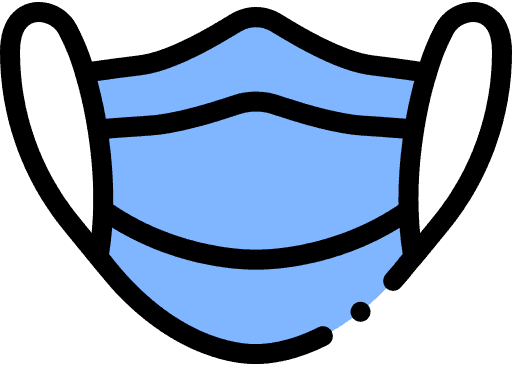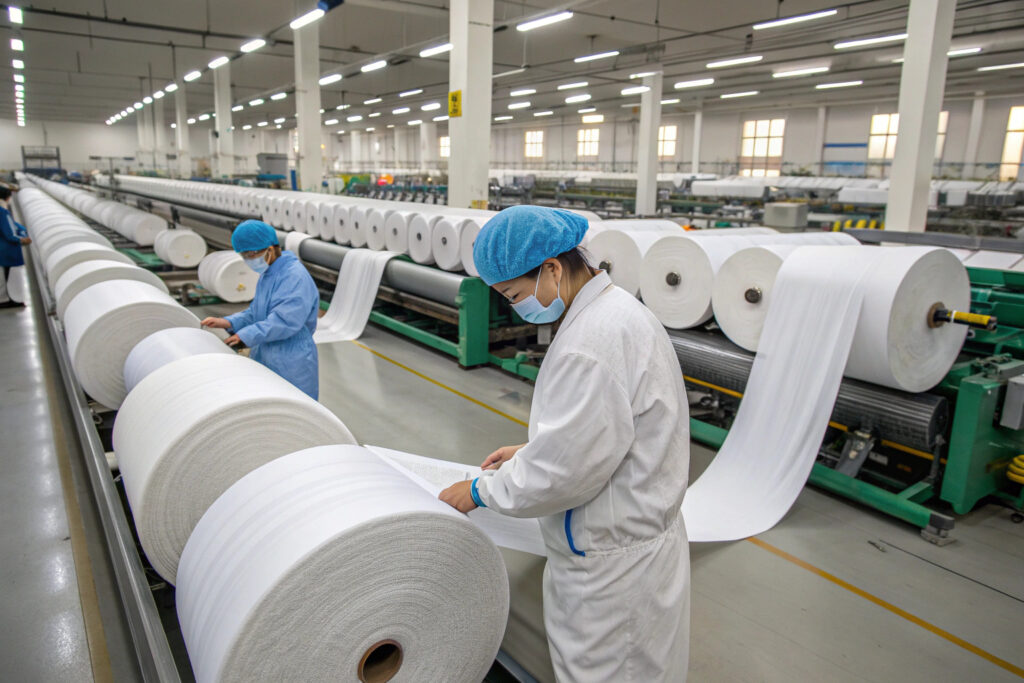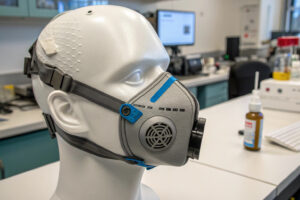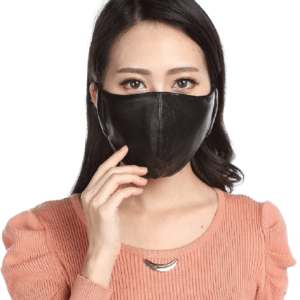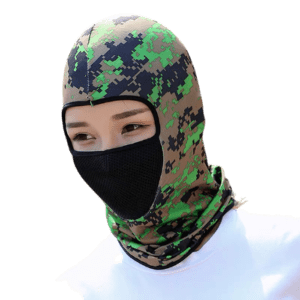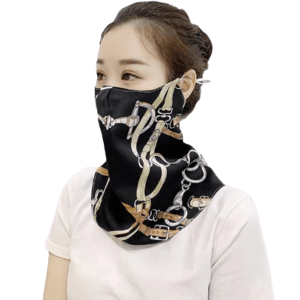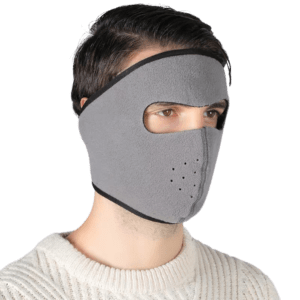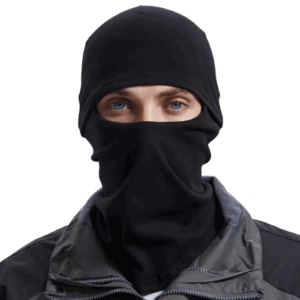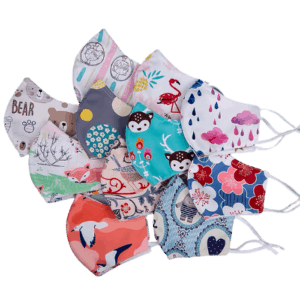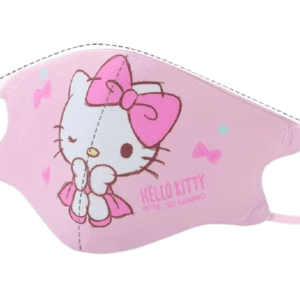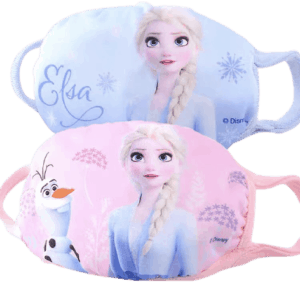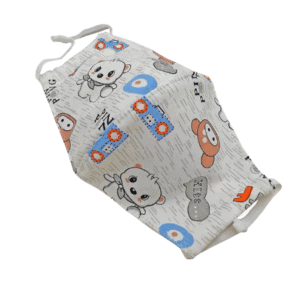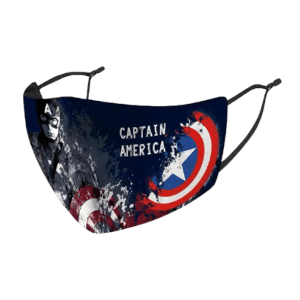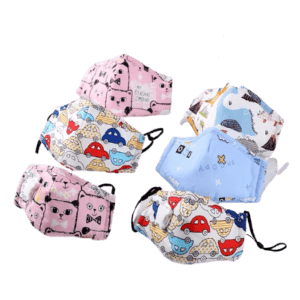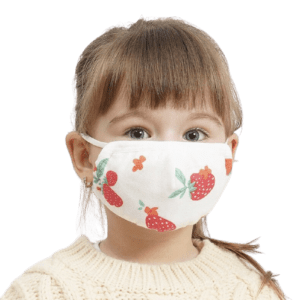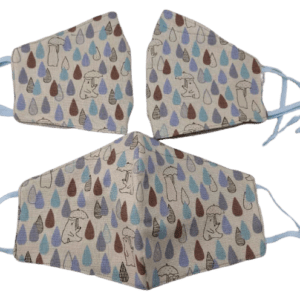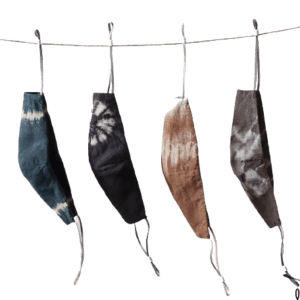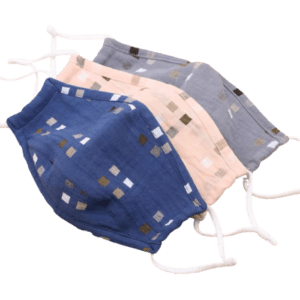Many businesses want to launch sustainable fabric mask lines but face uncertainty about production requirements. The commitment to eco-friendly materials shouldn't create impossible entry barriers. Understanding MOQ structures helps you plan your sustainable product launch effectively.
Minimum order quantities for eco-friendly recycled fabric masks typically range from 1,000 to 5,000 pieces per design, with variations based on fabric type, customization level, and mask style. These thresholds balance production efficiency with accessibility for businesses of different scales while maintaining sustainable manufacturing principles.
The growing demand for sustainable personal protective equipment has made manufacturers more flexible with MOQs. Let's explore what factors influence these numbers and how you can optimize your order strategy.
What Factors Determine MOQs for Recycled Fabric Masks?
MOQs aren't arbitrary numbers - they reflect real production economics and material considerations. Understanding these factors helps you negotiate better terms and plan your inventory effectively.
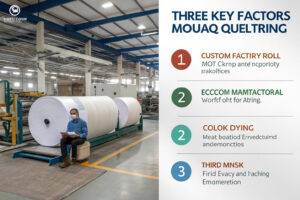
How does fabric sourcing impact MOQ?
Recycled fabrics often have higher minimum purchase requirements than conventional materials. Manufacturers need to order substantial quantities from mills to maintain consistent quality and color matching. The sustainable fabric sourcing process for recycled polyester or cotton typically requires purchasing full rolls, which translates to approximately 2,000-3,000 masks per color way. This material commitment ensures the ecological and quality credentials of the fabric while keeping costs manageable. Our partnerships with recycled fabric mills allow us to offer lower thresholds by consolidating orders across multiple clients.
Why does customization affect quantity requirements?
The more customized your masks, the higher the minimum quantity needed to justify production setup. Standard designs using existing patterns and materials have the lowest MOQs, while fully custom elements like unique contour molded fabric mask shapes, specialized prints, or branded packaging increase the threshold. Each customization requires machine adjustments, new cutting dies, or printing plates whose costs must be spread across your order. We've optimized our production to offer remarkable flexibility, with some basic recycled mask designs available from just 1,000 pieces.
How Do Different Mask Styles Affect MOQ Requirements?
The complexity of your chosen mask style significantly influences production minimums. Simpler designs accommodate smaller orders, while technical styles require greater commitment.
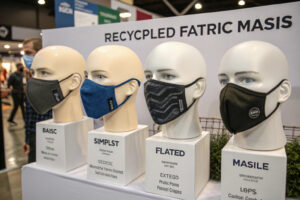
Why do basic styles have lower MOQs?
Simple designs like pleated flat fold fabric masks typically start at just 1,000 pieces because they use standard patterns and efficient production processes. These styles require minimal machine adjustments and can be produced in large batches with quick changeovers between colors or fabrics. The manufacturing efficiency of these designs makes them ideal for businesses testing the market or launching initial sustainable product lines. Our production lines can manufacture up to 10,000 basic recycled masks daily, creating economies of scale that benefit smaller orders.
What increases MOQs for technical designs?
Complex styles like KN95-style fabric masks with filter pockets and specialized seals often require 3,000-5,000 piece MOQs. These designs need additional components, multiple production stages, and stricter quality controls. The assembly process involves more steps and specialized equipment setups that only become efficient at higher volumes. Our approach to these technical styles involves grouping similar orders to lower individual client MOQs while maintaining quality and sustainability standards.
What Strategies Can Reduce Your MOQ Burden?
Several practical approaches can help you meet MOQ requirements without over-committing inventory or capital. Smart planning makes sustainable mask production accessible.

How can color and design simplification help?
Limiting your initial color palette and avoiding overly complex designs significantly reduces MOQs. Choosing from standard recycled fabric colors rather than requesting custom dyeing can cut minimums by 30-50%. Similarly, selecting existing reusable washable fabric mask patterns rather than developing completely new designs eliminates pattern-making costs and setup time. We maintain an inventory of popular recycled fabrics in neutral and trending colors specifically to help clients launch with lower quantities.
Can order consolidation provide solutions?
Combining multiple products into a single order often helps meet overall MOQs while maintaining variety. Instead of ordering 3,000 of one style, you might order 1,000 each of three different styles that use similar materials and production processes. This approach works particularly well for businesses wanting to offer a diverse product portfolio without deep inventory in any single item. Our order management system helps clients optimize their product mix to meet minimums efficiently.
How Does Pricing Change with Order Quantities?
Understanding the relationship between quantity and cost per unit helps you make informed decisions about your order size and budget planning.
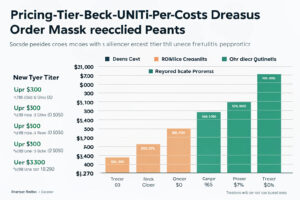
What are typical price breaks at different quantities?
Significant price reductions usually occur at 1,000, 3,000, and 5,000 piece thresholds for recycled fabric masks. The cost per mask between 1,000 and 3,000 pieces might decrease by 15-25%, with another 10-15% reduction at 5,000 pieces. These competitive pricing structures reflect the improved production efficiency and material purchasing power at higher volumes. We provide transparent pricing tables that show exactly how costs evolve across quantity tiers for each mask style.
How do sustainable materials affect pricing tiers?
Recycled fabrics typically cost 20-30% more than conventional materials, which affects all pricing tiers. However, the per-unit premium decreases at higher quantities as material waste reduces and production optimizes. The eco-friendly production process becomes more cost-effective as order size increases, making sustainable masks increasingly competitive. Our commitment to environmental responsibility includes finding efficiencies that make recycled masks accessible across order sizes.
Conclusion
Minimum order quantities for eco-friendly recycled fabric masks balance production practicality with market accessibility. While typical MOQs range from 1,000 to 5,000 pieces, strategic planning around design selection, color choices, and product mix can optimize your entry point. The growing demand for sustainable PPE has driven manufacturers to offer more flexible terms without compromising on quality or environmental standards.
Ready to launch your sustainable fabric mask line with practical MOQ options? Contact our Business Director, Elaine, at elaine@fumaoclothing.com to discuss customized solutions for your eco-friendly mask production. We'll help you find the right balance between commitment and flexibility for your business needs.
